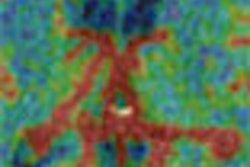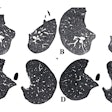Dear AuntMinnie Insider,
Much of the buzz in VC research these days is about doing more with less -- less radiation and less uncomfortable bowel cleansing, to be precise. In these goals radiologists see hope for a virtual exam that is easier, more attractive to the screening masses, and safe beyond a reasonable doubt.
Considering the difficulty of the task, it's encouraging to see a study that not only survives under such patient-friendly constraints, but appears to thrive. This issue's Insider Exclusive story details a study by radiologists from the University of Rome "La Sapienza," who achieved high accuracy in a very-low-dose low-prep VC protocol in 180 patients -- in results compared to segmentally unblinded conventional colonoscopy. You can access the latest results here, before they are made available to our other AuntMinnie.com members.
VC CAD systems, fertile ground for research in their own right, are likely to join practices as a second reader sooner rather than later. Dr. Ronald M. Summers, Ph.D., of the National Institutes of Health in Bethesda, MD, had a hand in two VC CAD articles in this Insider. At last week's Society for Computer Applications in Radiology meeting, Summers discussed where VC CAD stands today, and where it needs to go. In a study published in Academic Radiology, Summers and colleagues pondered the more arcane topic of support vector machine classifiers for CAD algorithms.
Finally, Dr. Michael Zalis et al from Massachusetts General Hospital in Boston tied the subjects of CAD and low-prep together with a look at the difficulties involved in creating the patient-friendly exam of the future.
Scroll down for more stories on VC, screening reimbursement, colon cancer research, and more. And thanks for visiting your Virtual Colonoscopy Digital Community.




















